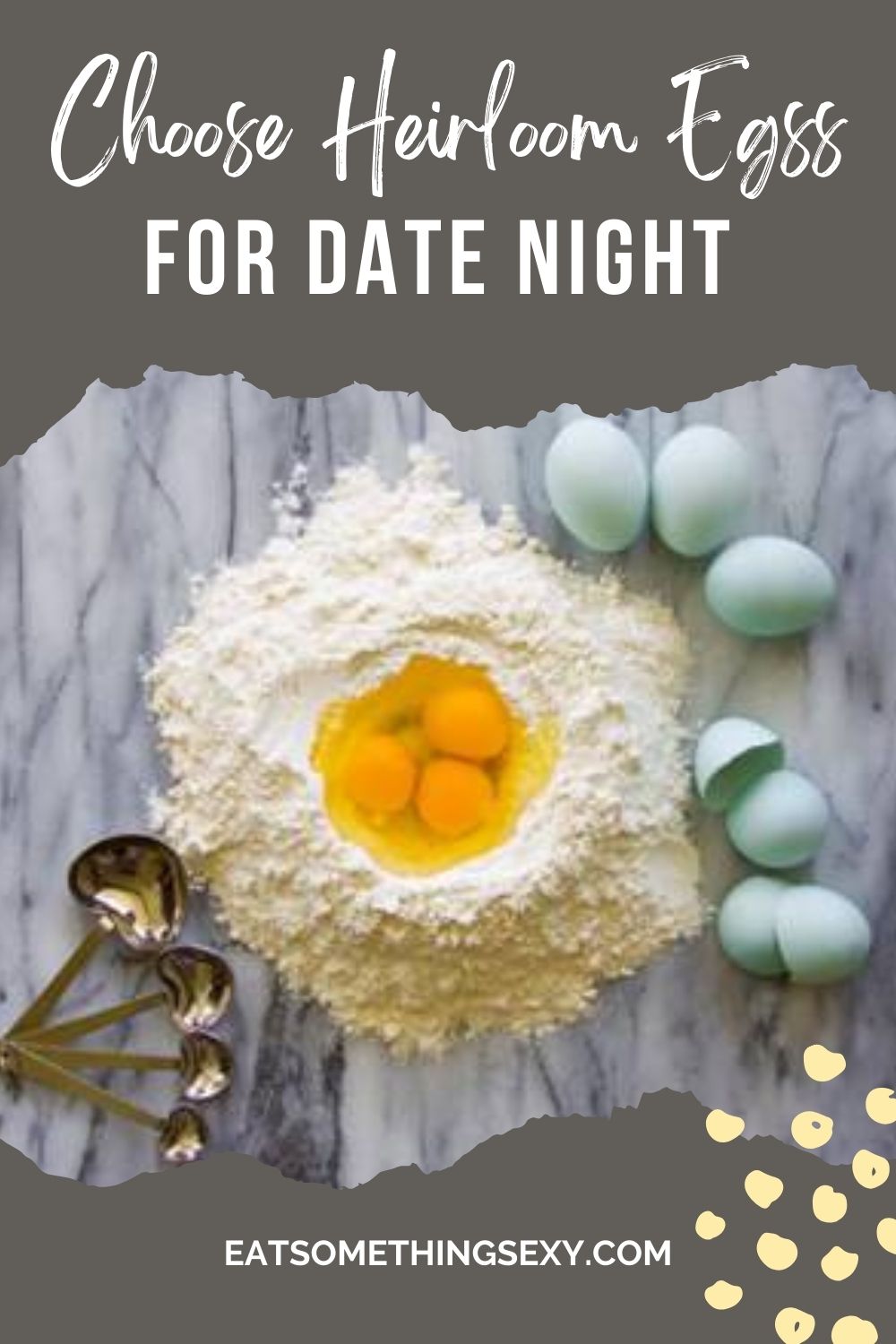Heirloom Egg Benefits: Are They Better Than Your Average Egg?
The egg is one of the most powerful, ancient aphrodisiac symbols. And although historically eggs were considered aphrodisiacs because they represent new life, we now know that from a nutritional perspective, eggs are good for health, including sexual health. It’s been said that heirloom eggs are superior. But are they really better than other eggs?
What are heirloom eggs?
You could call heirloom eggs the fancy cousins of your regular eggs. But they aren’t really so much fancy as they are pedigreed. Imagine them as eggs with a bit of history and character. They come from chickens that haven’t been messed with genetically, so they’re sometimes considered more natural.
They aren’t necessarily any more natural than your average egg but they do come in beautiful colors, like pale blue and even chocolate brown. So, by cracking open and frying up an heirloom egg, you’re not just serving up breakfast but you’re also serving up a little bit of heritage.
Heirloom eggs vs regular eggs
As I said, not all eggs are created equal. Most eggs sold today come from one of two breeds. The chickens are sometimes fed antibiotics and a fairly standard diet. They often live in cages and get little to no exercise.
However, heirloom eggs come from chickens who are not only free-range, they’re raised without antibiotics. In addition, the chickens eat a rich and varied diet. Let’s take a look at heirloom egg benefits.
Which is better for cooking?
The eggs from heritage breeds of chickens tend to have thick shells and darker yolks than your average grocery store carton of eggs. Many chefs prefer using them in baking and feel that the thick yolks add to the texture of baked goods and that the whites whip with more fluffiness. They also give scrambled eggs and quiches a richer yellow color.
Which has better flavor?
I’ve known people who insist that beautiful blue, pink and green heirloom eggs have a superior flavor. I never taste-tested them myself so I took the word of my farming and chef friends who swore by these heritage eggs. That is until I stumbled upon this heirloom egg taste test by food authority J. Kenji Lopez-Alt.
According to the author’s extensive tasting experiments, nobody, not even esteemed food writers could tell the difference in flavor between an heirloom egg and your run-of-the-mill grocery store egg in a blind taste test.
Which is more nutritious?
I should start this debate by pointing out that all eggs are nutritious. They are a source of protein and offer several nutrients essential to a healthy sex life. So if you’re looking for food that’s good for sex, any egg, whether it’s white, brown or blue, is a good choice. (Don’t forget that eggs make my list of the 10 Best Foods for Women’s Sexual Health.)
But since heirloom eggs come from heritage breeds and are generally pasture-raised and well-fed, you might assume that they offer superior nutrition.
They don’t.
If you compare the nutrition between Vital Farms True Blues, (beautiful blue, heirloom eggs) and a grocery store egg, you can see that the nutritional benefits are almost identical.
Are heirloom eggs aphrodisiac?
All eggs are historically considered aphrodisiac. So is there any reason to choose heirloom eggs over any other egg for a romantic meal?
Heirloom eggs might be better for cooking. But they have just about the same nutrition and flavor as conventional eggs. So could they possibly be more aphrodisiac than any other egg?
That’s really going to depend on what turns you on. For some, perhaps the visual of chocolate brown and pastel blue eggs makes them more special. And if they’re saved to be served on a romantic occasion, that specialness could heighten the romance.
And they might be the sexiest eggs for another reason. If you’re like me, you find environmental crusaders sexy. Heirloom eggs are considered an environmental choice because they help promote genetic diversity. In addition, heritage hens tend to forage for their food, which makes for a natural form of pest control and can help turn the soil naturally.
Although chickens from heritage breeds don’t necessarily make more aphrodisiac eggs, they do help support our planet, which is good for everyone’s well-being. And the people who go to the extra effort to seek heirloom eggs are most definitely making a sexy choice.
Where can you get heirloom eggs?
There are several brands of heirloom eggs, like Carol’s,and Vital Farms, sold through specialty retailers. I recently ordered them for delivery through Instacart. In some markets, you can find them at major grocery chains like Safeway. You can also order Vital Farms True Blues on Amazon.
This article was written in 2012 and most recently updated in April 2024.







You make a good point that there are mo hormones for American egg hens and the word hormone should not have been used in the article. It has since been removed. However, antibiotics refer to antibiotics given to the hens, which although isn’t necessarily a common practice, does occur. And raising animals antibiotic-free is better for the planet and worth mentioning.
ugh, chickens breed for their eggs at least in the U.S are NOT given antibiotics or hormones. Just like gmo wheat is not allowed but companies will use a non-gmo certification as a selling point for misinformed customers reading misinformed articles like this one.